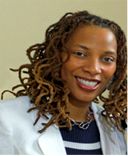Many black women have rejected the term feminist because of the history of racial exclusion of nonwhites to the feminist movement. Before women received the right to vote (and black men had the right), white feminist and conservative suffragist leader Carrie Chapman Catt said: “[T]here is but one way to avert the danger. Cut off the vote of the slums and give it to [White] women.” Catt continued that white men should recognize “the usefulness of woman suffrage as a counterbalance to the foreign vote, and as a means of legally preserving White supremacy in the South.” This was during the first wave of feminism (early 1800s-1950s). The second wave of feminism (mid-1960s-present) has had a similar emphasis on race. Because recent feminism has focused greatly on the liberation of middle class white women from white male patriarchy, some black women have not felt that this movement is for them.
This type of emphasis is what led writer Alice Walker to develop the term womanist, and many black women, including some of us who are Christian, have embraced this label. Walker defines womanist as “[a] black feminist or feminist of color. . .who loves other women, sexually and/or nonsexually. Appreciates and prefers women’s culture. . .[and who] sometimes loves individual men, sexually and/or nonsexually. Committed to survival and wholeness of entire people, male and female. . .Womanist is to feminist as purple is to lavender” (from Walker’s In Search of Our Mothers’ Gardens). Do you consider yourself a feminist? If not, do you think womanist is a suitable alternative to feminist? As a Christian, do you think that you should call yourself a feminist or womanist? Why or why not? I am really looking forward to hearing from you.
Copyright 2009 by Rhonda J. Smith

